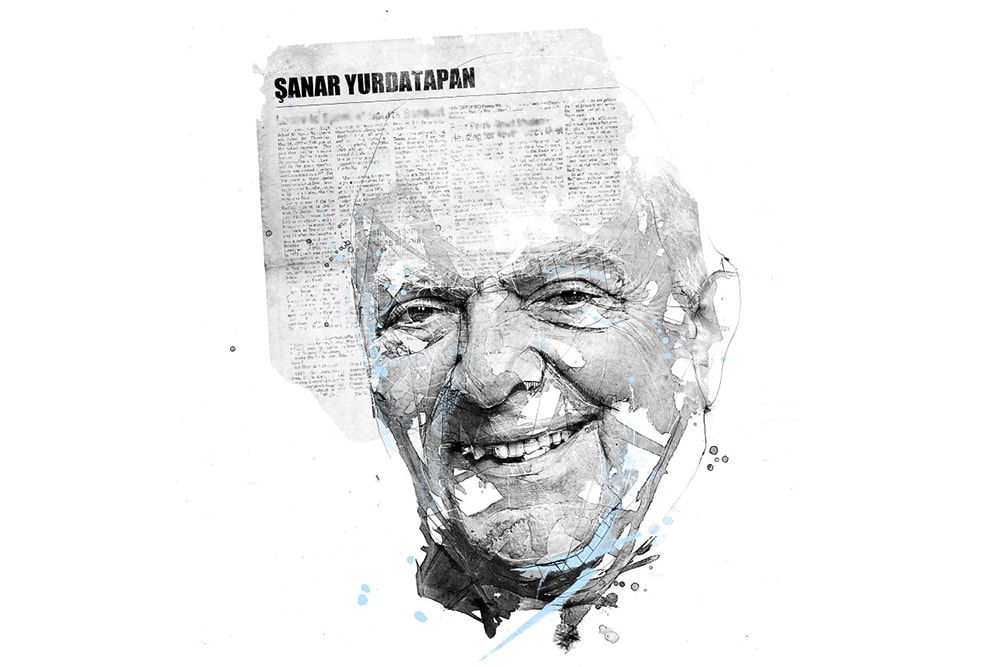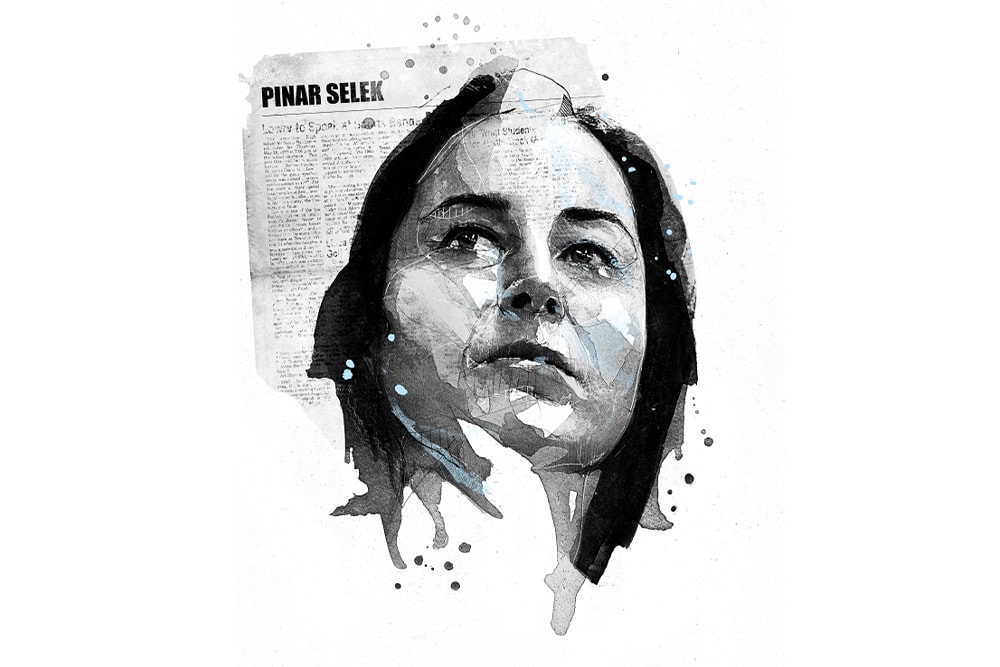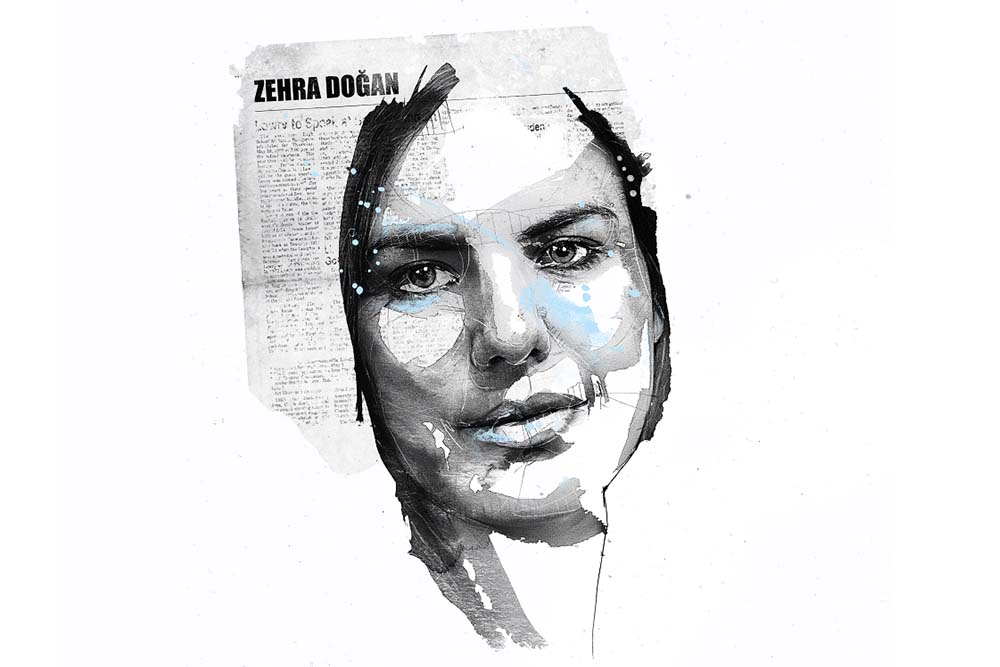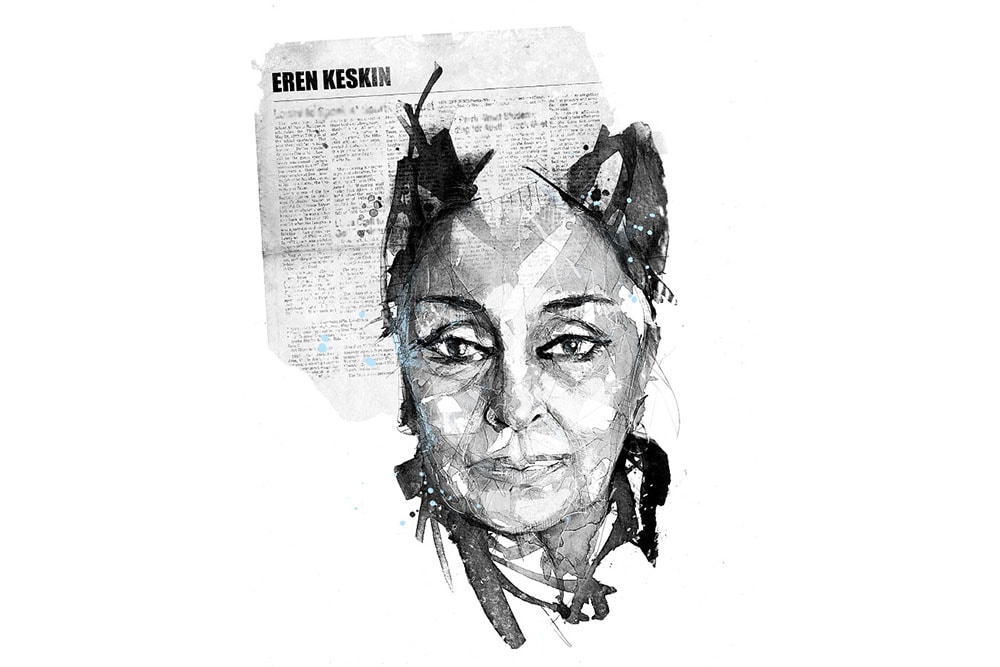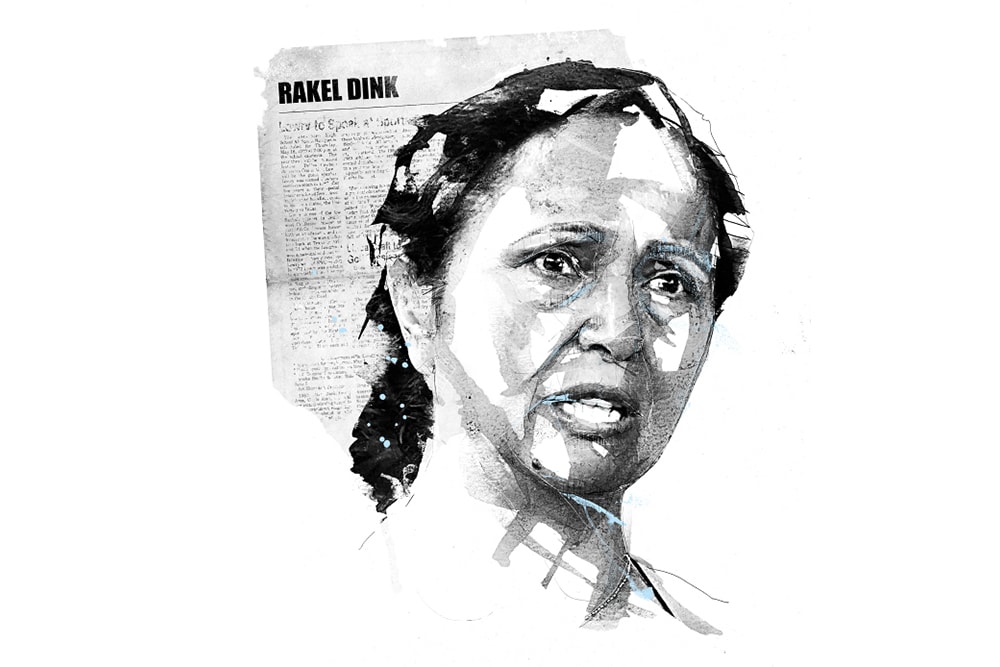Şanar Yurdatapan is a renowned writer and composer. He also happens to be one of the most vocal foes of anyone who dares to impose anti-democratic rules in Turkey.
In a message to IFEX in October 2016, Şanar Yurdatapan described what it was like to be a part of the global network defending and promoting free expression: Meeting with IFEX and being a part of it has changed a lot in our relations with the world. Besides the direct support to our projects, IFEX gives us the possibility to contact freedom of expression activists on other continents, exchange experiences and support – even participate in – each other's activities.
Şanar Yurdatapan is a writer, composer and spokesperson for the Initiative for Freedom of Expression-Turkey – a non-profit organisation with no executive committee and no legal structure that defines itself as a “a movement of civil disobedience that is breaking anti-democratic rules.” The group has been a member of IFEX since 2007.
Born in Susurluk in 1941, Yurdatapan became politically active in the 1960s, when he got involved with the Turkish Labour Party. In the 1970s, he became famous for his pop music compositions. His award-winning song Arkadaş – written for a film by the same name – is still performed to this day.
In 1980, Yurdatapan and his (ex)-wife Melike Demirağ were forced into exile for more than 11 years, during which time they were stripped of their Turkish citizenship. While in exile, music became an important platform for Yurdatapan’s commitment to free expression and advocacy. In 1982, he recorded “Songs of Freedom from Turkey: Behind Prison Bars,” a protest album that can be found in many libraries today.
They were granted amnesty and allowed to return back to Turkey in 1991. With their citizenship returned to them the following year, it did not take Yurdatapan long to launch into activism again.
In 1995, renowned novelist Yaşar Kemal was charged under the anti-terror law for a Der Spiegel article about the oppression of the Kurdish population in Turkey, prompting Yurdatapan and other activists to stage a unique form of civil disobedience. More than 1000 intellectuals wrote down their names as the publishers of a book containing banned texts – including Kemal’s – and informed the State Prosecutor of their “crime” and forming “queues of expression” outside his office. A mass case was subsequently opened against 185 of those individuals, drawing attention to Kemal’s case, and censorship at large.
The creativity imbued in this act of civil disobedience has become a staple of Yurdatapan’s continued fight for free expression.
In 2003, Yurdatapan, who identifies as an atheist, and Abdurrahman Dilipak, an Islamist theologian, co-published Opposites: Side by Side. Divided into two parts, the book allows both authors to discuss controversial topics like gender, faith, human rights and fundamentalism. “We wanted to show that we could live together with our differences, holding onto them.”
Yurdatapan’s innovative approach to advocacy of free expression does not end there. In 2014, he and his colleagues founded the Museum of Crimes of Thought, a digitised campaign project that documents free expression abuses in Turkey.
The digital space allows visitors to navigate the halls like a tourist in an actual museum. They can see the office of State Prosecutor, step inside a realistic depiction of a Turkish courtroom, and learn more about how Turkish law has been to stifle press freedom.
But Yurdatapan’s most recent form of activism did not occur online – and its consequences extend far beyond the reach of our screen. On 23 September 2016, Yurdatapan and 30 other activists attended their first trial for signing a statement in support of Ms. Ayşe Çelik, a teacher from Diyarbakir, a Southeast province in Turkey, who publicly pleaded for more media attention to killings and other abuse against civilians ongoing across southeast Turkey. In April 2017, Çelik was sentenced to one year and three months in prison, and her supporters, Yurdatapan among them, were acquitted.
Yurdatapan is one of more than 50 people who came to the support of the beleaguered newspaper Özgür Gündem by offering themselves as ‘guest editors’. On 13 January 2017 he was given a 15-month suspended sentence for his one-day guest editorship of the daily. He was also charged with carrying out ‘terrorist propaganda’ for his defence of three other of the daily’s temporary editors, Erol Önderoğlu, Şebnem Korur Financı, and Ahmet Nesin, who were arrested in June 2016, and spent 10 days in prison before being released to face trial. Yurdatapan was acquitted of this charge on 3 April 2018.
Yurdatapan’s courage and commitment to free expression has not gone unnoticed. International recognition of his work includes the 2002 “Circumvention of Censorship” Award by Index on Censorship and Human Rights Watch’s “Global Human Rights Defender” award. He is also the recipient of Turkish freedom of expression awards from the Journalists Association of Turkey (2015), the Human Rights Association, The Association of the Oppressed and the Association of Modern Journalists.
Since late 2019, Yurdatapan has been presenting “What’s Goin’ On?”, a monthly video show for the Initiative for Freedom of Expression – Turkey, in which journalists and activists discuss recent developments in the human rights situation in Turkey.
Illustration by Florian Nicolle
